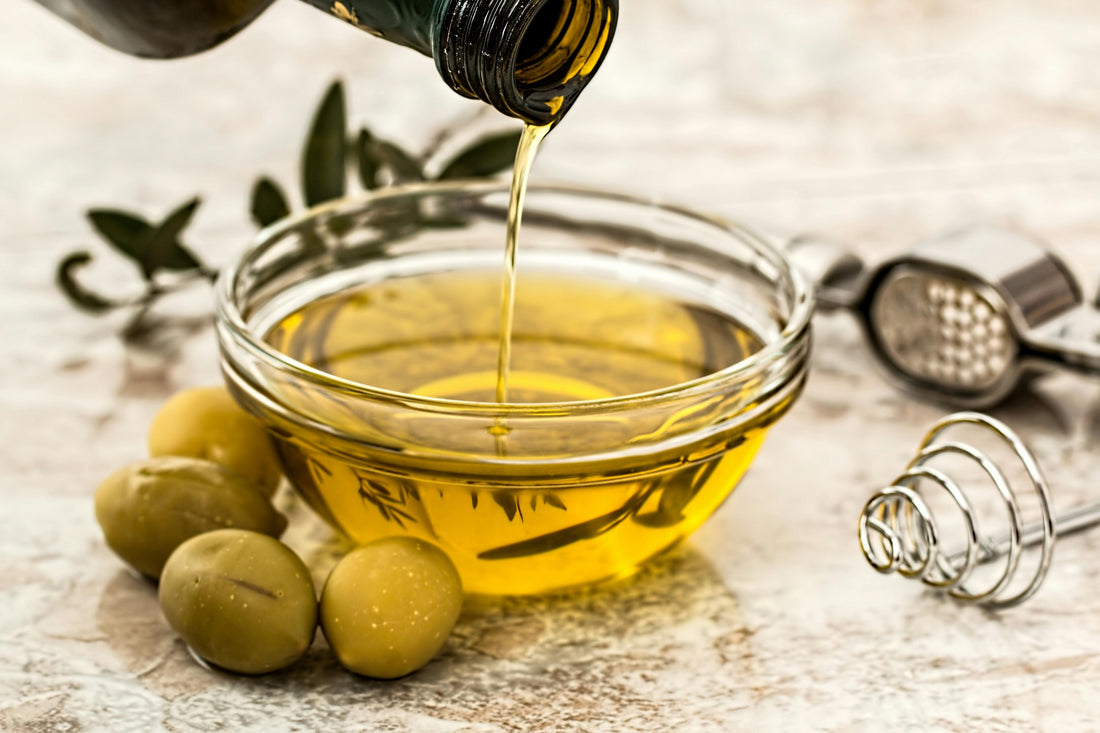
What is the healthiest oil to cook with
Knowing which oil is the best option to cook with can be very confusing.
Oils are of course a fat, and there are different types of fats; some really good for us, others not so much.
Let's take a look at some of the better oils available you can use to cook with.
The healthiest oils to cook with

Olive oil or EVOO (extra virgin olive oil)
Very popular in the Mediterranean diet, olive oil is one of the world's most popular oils, also for its health properties.
Olive oil can help raise HDL (good) cholesterol levels reducing the risk of heart disease and may help, reduce inflammation, and even lower cancer risk.

Coconut oil
Coconut oil has increased in popularity in recent years, for both its flavor and heat resistance. It's a saturated fat, so it should be consumed in moderation.
Several studies have found a link between coconut oil consumption and lower rates of cardiovascular disease.

Avocado oil
Avocado oil does have quite a stronger taste and odour. It works great in both a salad or used for cooking at high temperatures.
Avocado oil is also rich in vitamin E, linoleic acid, linolenic acid, and oleic acid. This oil is also high in the antioxidant lutein.

Flaxseed oil
Flaxseed oil, also known as linseed oil, is rich in alpha-linolenic acid (ALA), which is an omega-3 fatty acid.
These little seeds are full of oily fibre which is a prebiotic, and they assist the bowels to move well. They also provide a beautiful balance of omega 3 and protein, as well as many micronutrients, and are one of the oldest seeds in the world.
Nutritionally-rich and can indeed help with reducing inflammation.

Sesame oil
This oil, extracted from sesame seeds, has been shown to have anti-inflammatory, antimicrobial, and antioxidant properties.
Sesame oil is also rich in vitamin K, which helps with blood clotting, preventing excessive bleeding.

MCT oil
MCT oil is a medium chain triglyceride oil, fats that can be found in coconut oil, palm kernel oil, and dairy. MCT oil is used by people who want to lose weight, or boost their endurance during a workout.
Scientific evidence suggests that it would help satiate and reduce appetite.
Oils to avoid
- vegetable oil
- soyabean oil
- canola oil
- Palm oil
Vegetable oil is heavily processed, and some contain high levels of polyunsaturated omega-6 fats. Consumed in excess, these fatty acids may increase inflammation.
Researchers have found a connection between soyabean oil and metabolic and neurological changes.
Canola oil may contain trans fats, which are added as part of deodorization during the refining process. Trans fats have been linked to an increase risk of high cholesterol levels, high blood pressure, and diabetes.
World Health Organization (WHO) states that: "Some studies link consumption of palm oil to increased ischemic heart disease mortality, raised low-density lipoprotein cholesterol, increased risk of cardiovascular disease and other adverse effects. Other studies show no negative effects or even favorable health outcomes from palm oil consumption."
Which oil do you use?


